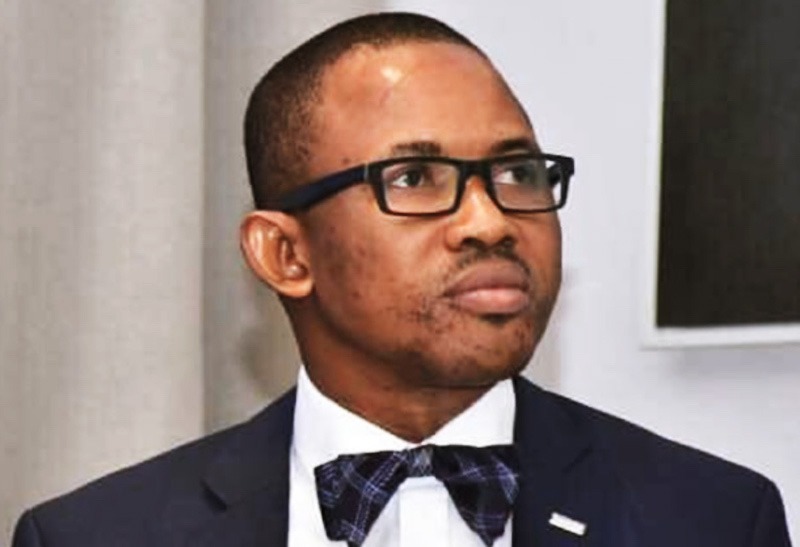
…MTN Nigeria, Others Appeal For Fair, Competitive Environment
…Challenged By Rising Operational Costs, Stable Service Charge
LAGOS – As the impasse between telecom operators and deposit money banks (DMO) in the country continues unresolved over the payment of unstructured supplementary service data (USSD) debt owed telecom companies, stakeholders in the two industries have advocated a mutual settlement of the lingering rift to avert the planned stoppage of services by the telcos.
Early this week, telecom operators under the aegis of the Association of Licensed Telecom Operators of Nigeria (ALTON) threatened to withdraw the USSD that they offer to banks following an accumulated debt amounting to over N250 billion owed the operators by the banks.
If they make good their threat to disrupt the USSD service, bank customers would not be able to carry out financial transactions on their mobile phones, while using the USSD codes which are operated without the use of data and mobile apps.
Speaking on how the USSD service withdrawal plan can be averted, Engr Gbenga Adebayo, Chairman of ALTON, said that although there had been talks on the issue, no considerable action was taken on the part of the banks.
Adebayo said the debt must be paid in total, stressing that “telcos would not hesitate to block debtor banks from accessing the service anytime soon”.
“In spite of all appeals, meetings and interventions by the ministry of communications, innovation and digital economy, Central Bank of Nigeria (CBN), and NCC, mainly during the last administration, the banks have kept mute over payment,” he said.
“If operators had to shut down their services, bank customers would no longer be able to carry out transactions such as fund transfers through shortcodes, check bank details and account balances, among others, through their mobile phones.”
Adebayo said the matter needed to be resolved as fast as possible to avoid the collapse of the sector, adding that the debt was not allowing operators to further expand services.
Ejike Onyeaso, Director at Adaba Consult, a telecommunications consultancy firm, said the core of the issue lies in the leased lines granted to banks and their usage.
He said that while telecom service providers have been offering these lines, the banks have not compensated them adequately for the services rendered.
“The staggering amount involved necessitate the sustainability of the telecommunications industry,” he said.
He added: “At the same time, it’s vital for the banking sector to avoid any form of collapse. If telecommunications operators follow through on their threats, certain banking services would be impacted during any suspension.”
Also expressing his displeasure over the challenges being faced by telecom operators, Karl Toriola, CEO of MTN, said that price increments have become a necessity, emphasising that the telecom sector has been struggling with rising costs in all areas, including the price of capital and the increasing expenses for maintaining infrastructure such as base stations and diesel generators.
Despite the economic challenges confronting the industry, the USSD debt has escalated significantly, with Toriola urging the Central Bank of Nigeria (CBN) and the Nigerian Communications Commission (NCC) to mediate for a resolution.
He expressed confidence that the newly appointed Central Bank of Nigeria governor, Yemi Cardoso, alongside the Executive Vice Chairman of the Nigerian Communications Commission, Dr Aminu Maida, would soon find a resolution to the ongoing dispute.
While the USSD debt banks owing the telecom operators may be the major issue of conflict, there has also been a push by the telcos for upward review of call, text and data tariffs which the relevant regulatory agency, NCC has not given a nod to.
The National Association of Telecommunications Subscribers (NATCOMS) president, Deolu Ogunbanjo, urged the NCC to consider the 10 per cent tariff increase being proposed by the telcos to moderate the rising operational costs in the nation’s telecommunications sector.
Ogunbanjo said tariff hike is necessary for telecom companies to sustain their operations and improve service quality.
He stated that the current economic conditions are negatively impacting telecom operators’ business, making it crucial for the regulatory agency to find a balanced solution.
According to him, “When you now look at the quality of service the telecom companies are rendering to this day, it is very poor, and they are also complaining.
“Do not forget that they said their operations were getting burdensome because of the rising costs of things, such as petrol, diesel and some other things, that will make the network function appropriately.
“They are complaining. I think in the last 11 years, they have not increased their service charge, operational costs have increased but not physically like we see in petrol.”
Recently, MTN Nigeria and other multinational business leaders have urged the Federal Government to establish a fair, competitive environment that would allow businesses to maintain their investments within the nation.
The business operators lament that the government has not allowed them to increase their prices in the last ten years, stating that such a policy must be reviewed if they must stay in business.
Speaking on the need for tariff review, Modupe Kadri, the Chief Financial Officer of MTN, explained that the prevailing high inflation rates and fluctuations in foreign exchange have hindered the telecommunications sector’s ability to function efficiently.
Kadri emphasised that the current economic conditions have led to increased tariffs in the petroleum and electricity sectors, questioning why similar adjustments have not been authorised for the telecommunications sector.
He underscored that telecom operators have not been granted regulatory permission to modify their pricing for over ten years despite the fact that they import telecommunications equipment at foreign currency rates.
Kadri said: “For ten years now, telecommunication companies haven’t been permitted to increase prices, and this regulation is not providing us with a level playing field to operate. If we are to stay in business, this policy must be reviewed, similar to how electricity and fuel prices are adjusted to reflect current economic realities.
“Our business is mainly dependent on foreign exchange, so customers need to understand that for them to receive the services they desire, it costs money.
“When people have to invest in the country and are unable to monetise their investments, it cannot work.
“The only way this economy will thrive is if there is appropriate pricing such that investments in the sector are guaranteed. The government is talking about diversifying; I’m talking about survival. What is the business case for me to invest when I’m bleeding almost to death?
“The telecommunications industry contributes 16 per cent to the GDP, and it is not something that you can mess around with.
He stated that for the government to encourage the survival of businesses, there had to be a level playing field.
“If we are not careful, what happened to the oil industry, which led to a loss of investments, will happen to telecommunications, and the industry will come to a halt. It’s not rocket science.”
While some stakeholders are in support of a hike in telecom tariffs, the Association of Telephone Cable TV and Internet Subscribers of Nigeria (ATCIS) went against the 10 per cent increase by telecoms operators, maintaining that it will add to the economic burden for the subscribers.
The national president of ATCIS, Sina Bilesanmi, said the proposed tariff increase should be suspended, while urging the telecom operators to improve the quality of their services.
Bilesanmi said the subscribers were not enjoying the services of many operators even before the economic hardship set in.
“The proposed 10 per cent increase is not welcome now. If they want to increase their tariffs, they should first give us quality services, we cannot continue paying for the services we don’t enjoy. We can’t continue wasting our hard earned money on low quality services.”

 2 hours ago
6
2 hours ago
6








